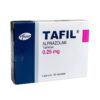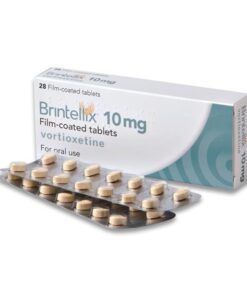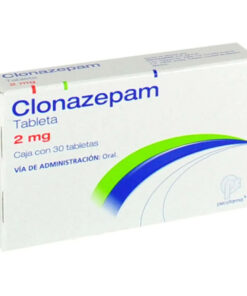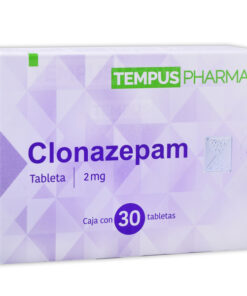Orlistat: side effects
Despite its efficacy and safety, the drug may cause side effects, among them are:
-
Allergic reactions: bronchospasm, lacrimation, urticaria (skin rash, itching).
-
Gastrointestinal tract: oily discharge from the rectum, flatulence, abdominal pain, diarrhea, small bleeding from the rectum, diverticulitis, pancreatitis.
-
Liver and biliary tract: increased activity of liver transaminases and alkaline phosphatase, hepatitis, cholelithiasis.
-
Urinary system: hyperoxaluria, oxalate nephropathy, sometimes leading to renal failure.
The most common short-term side effect of Orlistat is irregular defecation. A patient may experience these side effects within the first two weeks of starting Orlistat treatment.
If you continue to experience any of these side effects for an extended period of time, it is recommended that you stop using Orlistat and consult your doctor.
Dosage of Orlistat
Orlistat is prescribed 120 mg 3 times a day with main meals. The drug is taken with a meal or later, 1 hour after a meal. If meals are skipped, or if the food does not contain fat, Orlistat can be skipped.
Orlistat: price
Learn about the cost and availability of Orlistat online on the website of online pharmacy. The price is listed with a prescription from a physician who works for the pharmacy.
What is it for Orlistat 120 mg?
Orlistat 120 mg Mexico is designed for long-term treatment of overweight patients, including those with obesity associated with risk factors. The drug also improves:
- Hypercholesterolemia (excess cholesterol);
- Type 2 diabetes, glucose intolerance;
- Hyperinsulinemia (excess insulin);
- Hypertension (high blood pressure);
- Reduces visceral fat located between organs.
Do not prescribe Orlistat on your own, only your doctor can assess your need for this medication.
Orlistat for PCOS (polycystic ovarian syndrome)
PCOS is an endocrine disorder that occurs in women of childbearing age and is usually diagnosed when they want to become pregnant. In addition to hormonal abnormalities and ovarian polyps, metabolic disorders, particularly insulin resistance, also increase the risk of diseases such as type 2 diabetes, hypertension, lipid metabolism disorders, heart disease, breast cancer, and endometrial cancer.
The first choice in weight loss treatment for obese patients with PCOS is lifestyle changes, including dietary adjustments and moderate exercise.
However, relying on lifestyle changes alone can be difficult to achieve weight loss goals. Orlistat can help effectively reduce weight, lower total testosterone levels, correct abnormal lipid metabolism, return menstruation and ovulation to normal, and ultimately increase the frequency of pregnancy.
Orlistat: Diet
Aim to get about 30% of your calories from fat and distribute your fat, carbohydrate (starchy foods), and protein intake evenly between three meals a day. Don’t skip meals or snack between meals (no baked goods, candy, chips, smoked foods, nuts), and avoid individual high-fat meals.
Alli is a 60 mg over-the-counter version of Orlistat, a 120 mg prescription drug. Although both drugs contain the same active ingredient, the different dosage means they are prescribed differently. You can only buy Orlistat with a prescription from your doctor, whereas Alli can be prescribed by a pharmacist without a prescription.
The criteria for both treatments are similar, but the physician has more authority in to decide how long to continue treatment, while the pharmacist relies on the strict requirements spelled out in the instructions.
Strict over-the-counter rules for Alli mean that the drug cannot be prescribed to patients with a BMI (Body Mass Index) < 28. Orlistat, on the other hand, can be prescribed with a BMI up to 25.
The maximum treatment time for these drugs may also vary. Orlistat 120 mg can be used for up to 2 years, while over-the-counter Alli should not exceed more than 6 months of treatment.
Only at half the dose of Alli (60 mg) does the effect come slower compared to weight loss treatment with Orlistat.
Patients who are obese or have diseases associated with excess body weight are advised to choose Orlistat for faster weight loss. This is especially important if the patient has high cholesterol, high blood pressure, or diet-controlled diabetes.
Patients being treated for diabetes with insulin should inform their physician so that any special dosage recommendations can be made.
Alli will help the patient increase their weight loss potential by 30%, while Orlistat will make a difference of up to 50%. Using weight loss medication alone without lifestyle changes is not recommended, and the potential for weight loss can be increased by diet and exercise.
The choice of whether a patient should use Orlistat or Alli will depend on the patient’s condition and whether the weight loss program is controlled by a physician or whether it is an over-the-counter medication suggested by the pharmacist at the
Be the first to review “Slender Orlistat 1/120 Mg 60 Cáps” Cancel reply
Related products
Anxiety Medication
Anxiety Medication
Anxiety Medication
Anxiety Medication
Anxiety Medication
Anxiety Medication
Anxiety Medication
Anxiety Medication












Reviews
There are no reviews yet.